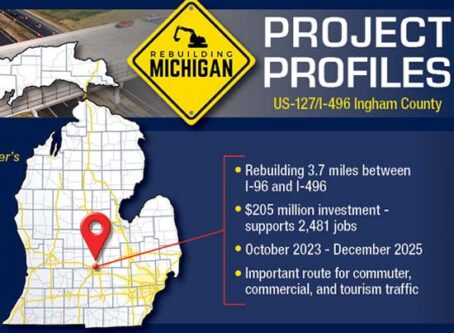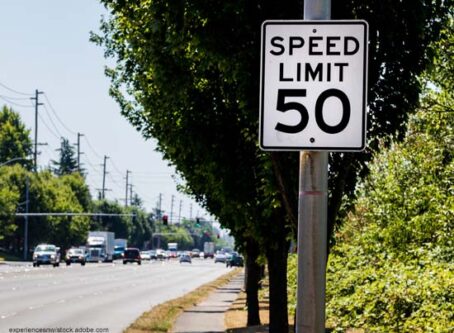Georgia heavy truck bill running out of time
A Georgia bill to allow certain 88,000-pound trucks on roadways around the state must play beat the clock at the statehouse. The Owner-Operator Independent Drivers Association has encouraged Georgia-based truckers to reach out to their state lawmakers about the legislation to permit heavy trucks.
Trucks traversing Georgia roadways now are limited to a maximum gross weight of 80,000 pounds. Exceptions are made for haulers moving products that include forestry, live poultry, cotton, feed, concrete, and solid waste. Affected loads are permitted to carry goods up to 84,000 pounds.
The current version of the House bill would permit with limitation heavier loads of certain commodities.
A circuitous journey through the statehouse
As introduced in the House, HB189 called for opening the door to heavier loads for all types of trucks and all commodities. Specifically, a 12.5% variance of the 80,000-pound weight limit would be authorized for all loads.
Despite a six-hour House Transportation Committee meeting last month that included a lot of negative feedback from Georgia departments of Transportation and Public Safety and more than 100 local government officials, the committee sent the bill along without changes. Shortly thereafter, the House Rules Committee sent HB189 back to the panel to make revisions.
The transportation panel was charged with addressing concerns that the original bill would result in GDOT needing to post load restrictions on more than 1,400 bridges around the state. The figure is double the current number of posted bridges.
GDOT also told lawmakers the designations would result in larger trucks being required to follow long detours to get to a bigger highway.
Advocates representing poultry, forestry, and other industries say higher fuel costs, inflation and tight labor markets warrant the change. They add the change would help reduce emissions.
The initial revisions to the bill limited applicable loads to agriculture, forestry, livestock, concrete or granite. Specifically, logging and farming commodities would be permitted a 10% variance – up to 88,000 pounds.
The amended bill eventually made its way to the House floor where it was approved on a 93-81 vote.
The first Senate stop for HB189 was the Senate Transportation Committee.
During a March 20 hearing to discuss the bill, Senate Transportation Committee Chairman Greg Dolezal, R-Cumming, explained the bill needed additional revisions to advance from the committee.
“We are at a crossroads with our funding and with some of the other underlying issues that really serve as a backdrop to this entire conversation,” Dolezal said.
One change made to the bill further limited applicable loads to agriculture and forestry hauls. Another change would limit affected truck loads to travel up to 75 miles from the farm or other processing facility where the load originated. The prior version of the bill permitted travel up to 250 miles from the origination location.
Another revision excludes the 13 metro Atlanta counties from the higher weight limit.
Additionally, local law enforcement would be authorized to write tickets for overweight trucks. Currently, only the state Motor Carrier Compliance Division is authorized to issue overweight citations.
One more change would authorize the heavier weight limit through June 2024.
The revised bill eventually cleared the Senate on a 44-5 vote. Because there were changes made to the bill after House lawmakers approved it, HB189 was required to head back to the chamber for final approval before moving to the governor’s desk.
House lawmakers, however, refused to sign off on Senate changes. As a result, the bill likely heads to a conference committee made up of select members from both chambers. The select group must reach an agreement on bill language before the full chambers can vote whether to send HB189 to the governor’s desk.
A final version of the bill must head to the governor before the regular session ends Thursday, March 30.
OOIDA concern about heavier loads
OOIDA President Todd Spencer has said higher weight limits historically are not a “winner” for most in trucking.
“While popular with shippers, adding heavier weights on state and county roads is bad public policy,” he said. “You end up with increased wear and tear on roads and bridges not adequately constructed for those loads.
GDOT Commissioner Russell McMurry shared the same point with lawmakers. He said state and local governments would need to spend billions of dollars more than they already do for road maintenance. LL









